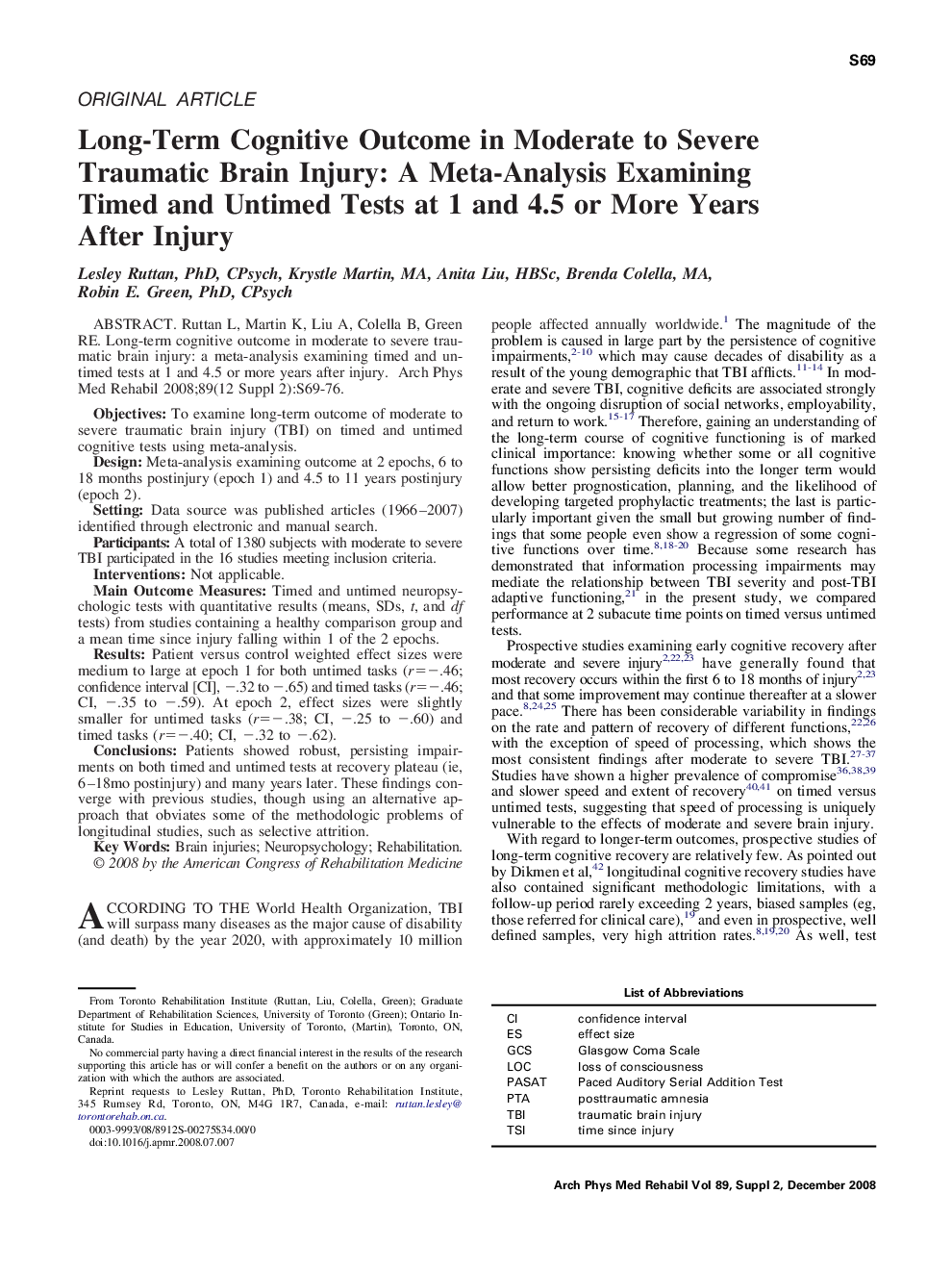| Article ID | Journal | Published Year | Pages | File Type |
|---|---|---|---|---|
| 3451605 | Archives of Physical Medicine and Rehabilitation | 2008 | 8 Pages |
Ruttan L, Martin K, Liu A, Colella B, Green RE. Long-term cognitive outcome in moderate to severe traumatic brain injury: a meta-analysis examining timed and untimed tests at 1 and 4.5 or more years after injury.ObjectivesTo examine long-term outcome of moderate to severe traumatic brain injury (TBI) on timed and untimed cognitive tests using meta-analysis.DesignMeta-analysis examining outcome at 2 epochs, 6 to 18 months postinjury (epoch 1) and 4.5 to 11 years postinjury (epoch 2).SettingData source was published articles (1966–2007) identified through electronic and manual search.ParticipantsA total of 1380 subjects with moderate to severe TBI participated in the 16 studies meeting inclusion criteria.InterventionsNot applicable.Main Outcome MeasuresTimed and untimed neuropsychologic tests with quantitative results (means, SDs, t, and df tests) from studies containing a healthy comparison group and a mean time since injury falling within 1 of the 2 epochs.ResultsPatient versus control weighted effect sizes were medium to large at epoch 1 for both untimed tasks (r=−.46; confidence interval [CI], −.32 to −.65) and timed tasks (r=−.46; CI, −.35 to −.59). At epoch 2, effect sizes were slightly smaller for untimed tasks (r=−.38; CI, −.25 to −.60) and timed tasks (r=−.40; CI, −.32 to −.62).ConclusionsPatients showed robust, persisting impairments on both timed and untimed tests at recovery plateau (ie, 6–18mo postinjury) and many years later. These findings converge with previous studies, though using an alternative approach that obviates some of the methodologic problems of longitudinal studies, such as selective attrition.
